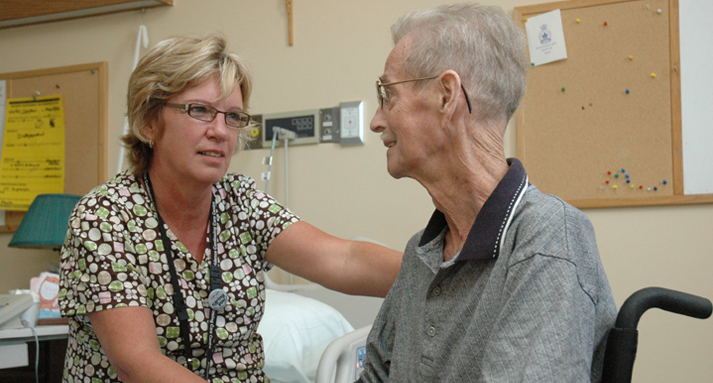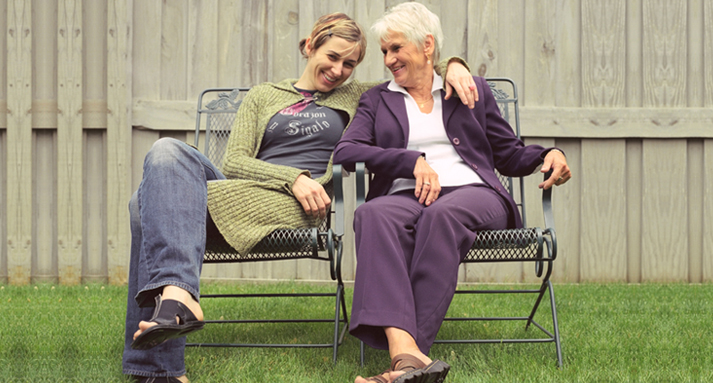 (855) 816-4777
(855) 816-4777
End-of-Life Care Resources
There are many excellent resources on the Web that are quite helpful. A number have been included in this list. They contain helpful information and additional links to interesting information.
Advanced Directives
An advanced directive (sometimes called a Living Will) is a legal document in which you state the kind of health care you want or don’t want under certain circumstances, such as if you become very ill and there is no reasonable hope for your recovery. A health care proxy (sometimes called a Durable Health Care Power of Attorney) is a legal document in which you name someone close to you to make decisions about your health care if you become incapacitated. It is often a good idea to have both - the Health Care Proxy to make the decisions and the Living Will to help guide their decisions.www.uslivingwillregistry.com
Aging Parents and Elder Care Information from the Administration on Aging
Information on aging-related issues for individuals and their
caregivers. Information on Alzheimer’s disease, elder rights and
resources, caregiver information, nutrition, and other topics.
www.aoa.gov/eldfam/eldfam.asp Additional sites with very good information and comprehensive checklists, links, and advice:
www.aging-parents-and-elder-care.com
www.caps4caregivers.org
Caregiver Support
General information about health and wellness for the
family caregiver.www.caregiving.com
Caring Connection
This program of the National Hospice and Palliative Care Organization is supported by a grant from the Robert Wood Johnson Foundation. It has excellent resources about
helping to make the best choices for caregivers of those living with advanced illness. Focused areas include: Planning Ahead, Caring for Someone Living with an
Illness, Community Resources, Hospice and Palliative Care, Pediatric, Grief, and also Spanish resources. www.partnershipforcaring.org
Growth House
The mission of Growth House, Inc., is to improve the quality of
compassionate care for people who are dying. The site provides an extensive directory of reviewed resources for life-threatening illness and end-of-life care. Growth
House offers a free monthly email newsletter covering new and noteworthy net resources for
terminal care, life-threatening illness, and bereavement. www.growthhouse.org
National Family Caregivers Association (NFCA)
The NFCA is a not-for-profit membership organization that supports the family members of individuals with chronic illness or disability. Information, support, resource
referrals, public awareness, and advocacy are provided as a way to help improve the quality of life for the caregiver. www.nfcacares.org
An advanced directive (sometimes called a Living Will) is a legal document in which you state the kind of health care you want or don’t want under certain circumstances, such as if you become very ill and there is no reasonable hope for your recovery. A health care proxy (sometimes called a Durable Health Care Power of Attorney) is a legal document in which you name someone close to you to make decisions about your health care if you become incapacitated. It is often a good idea to have both - the Health Care Proxy to make the decisions and the Living Will to help guide their decisions.www.uslivingwillregistry.com
Aging Parents and Elder Care Information from the Administration on Aging
Information on aging-related issues for individuals and their
caregivers. Information on Alzheimer’s disease, elder rights and
resources, caregiver information, nutrition, and other topics.
www.aoa.gov/eldfam/eldfam.asp Additional sites with very good information and comprehensive checklists, links, and advice:
www.aging-parents-and-elder-care.com
www.caps4caregivers.org
Caregiver Support
General information about health and wellness for the
family caregiver.www.caregiving.com
Caring Connection
This program of the National Hospice and Palliative Care Organization is supported by a grant from the Robert Wood Johnson Foundation. It has excellent resources about
helping to make the best choices for caregivers of those living with advanced illness. Focused areas include: Planning Ahead, Caring for Someone Living with an
Illness, Community Resources, Hospice and Palliative Care, Pediatric, Grief, and also Spanish resources. www.partnershipforcaring.org
Growth House
The mission of Growth House, Inc., is to improve the quality of
compassionate care for people who are dying. The site provides an extensive directory of reviewed resources for life-threatening illness and end-of-life care. Growth
House offers a free monthly email newsletter covering new and noteworthy net resources for
terminal care, life-threatening illness, and bereavement. www.growthhouse.org
National Family Caregivers Association (NFCA)
The NFCA is a not-for-profit membership organization that supports the family members of individuals with chronic illness or disability. Information, support, resource
referrals, public awareness, and advocacy are provided as a way to help improve the quality of life for the caregiver. www.nfcacares.org
American Pain Foundation
A grassroots, consumer-driven, individual-focused organization
dedicated to promoting better pain management by providing
practical information for patients and families.
www.painfoundation.org
Palliative Dementia Care Resources (PDCR)
Created by Polisher Research Institute and funded by the Farber Family Foundation, the PDCR guides professional and family caregivers to news, educational materials,
and organizations related to palliative care for individuals living with advanced dementia.
www.pdcronline.org
Veterans Affairs
The VA has programs and services specifically focused on the aging veteran population. Information may be found about services in community-based long-term care,
nursing home care, geriatric, palliative care, and hospice.http://www1.va.gov/geriatricsshg
Complementary and Alternative Medicine
Individuals are becoming interested in treatments outside traditional Western medical care to address medical and emotional conditions. These treatments are often
referred to as complementary medicine when used in addition to more standard treatment and as alternative medicine when used instead of traditional medical care. These
are collectively referred to as CAM Therapies. The four domains of CAM include: Mind-Body Medicine, Biologically-Based Practices, Manipulative and Body-Based
Practices, and Energy Medicine. More information about CAM may be found at the National Institute of Health site.http://nccam.nih.gov
Grief and Bereavement
A guide for those experiencing grief is available. This helps you
understand the grief that you or others may feel after the death
and will hopefully be helpful to you.
www.hospicenet.org/html/grief_guide.html
State Agencies
There are a number of very useful Web sites related to
palliative and end-of-life care available within each state.
Connecticut
www.cthospice.org
Maine
www.mainehospicecouncil.org
Massachusetts
www.hospicefed.org
www.endoflifecommission.org
New Hampshire
www.nhhpco.org
Rhode Island
www.health.state.ri.us/disease/cancer/hospicecare.php
A grassroots, consumer-driven, individual-focused organization
dedicated to promoting better pain management by providing
practical information for patients and families.
www.painfoundation.org
Palliative Dementia Care Resources (PDCR)
Created by Polisher Research Institute and funded by the Farber Family Foundation, the PDCR guides professional and family caregivers to news, educational materials,
and organizations related to palliative care for individuals living with advanced dementia.
www.pdcronline.org
Veterans Affairs
The VA has programs and services specifically focused on the aging veteran population. Information may be found about services in community-based long-term care,
nursing home care, geriatric, palliative care, and hospice.http://www1.va.gov/geriatricsshg
Complementary and Alternative Medicine
Individuals are becoming interested in treatments outside traditional Western medical care to address medical and emotional conditions. These treatments are often
referred to as complementary medicine when used in addition to more standard treatment and as alternative medicine when used instead of traditional medical care. These
are collectively referred to as CAM Therapies. The four domains of CAM include: Mind-Body Medicine, Biologically-Based Practices, Manipulative and Body-Based
Practices, and Energy Medicine. More information about CAM may be found at the National Institute of Health site.http://nccam.nih.gov
Grief and Bereavement
A guide for those experiencing grief is available. This helps you
understand the grief that you or others may feel after the death
and will hopefully be helpful to you.
www.hospicenet.org/html/grief_guide.html
State Agencies
There are a number of very useful Web sites related to
palliative and end-of-life care available within each state.
Connecticut
www.cthospice.org
Maine
www.mainehospicecouncil.org
Massachusetts
www.hospicefed.org
www.endoflifecommission.org
New Hampshire
www.nhhpco.org
Rhode Island
www.health.state.ri.us/disease/cancer/hospicecare.php
Testimonials
-
“Our position with the individual and family is simple. I’m here for you. I will keep you company and make you as comfortable as possible as you start your journey.”
- Sherry Martin, Vigil Volunteer













